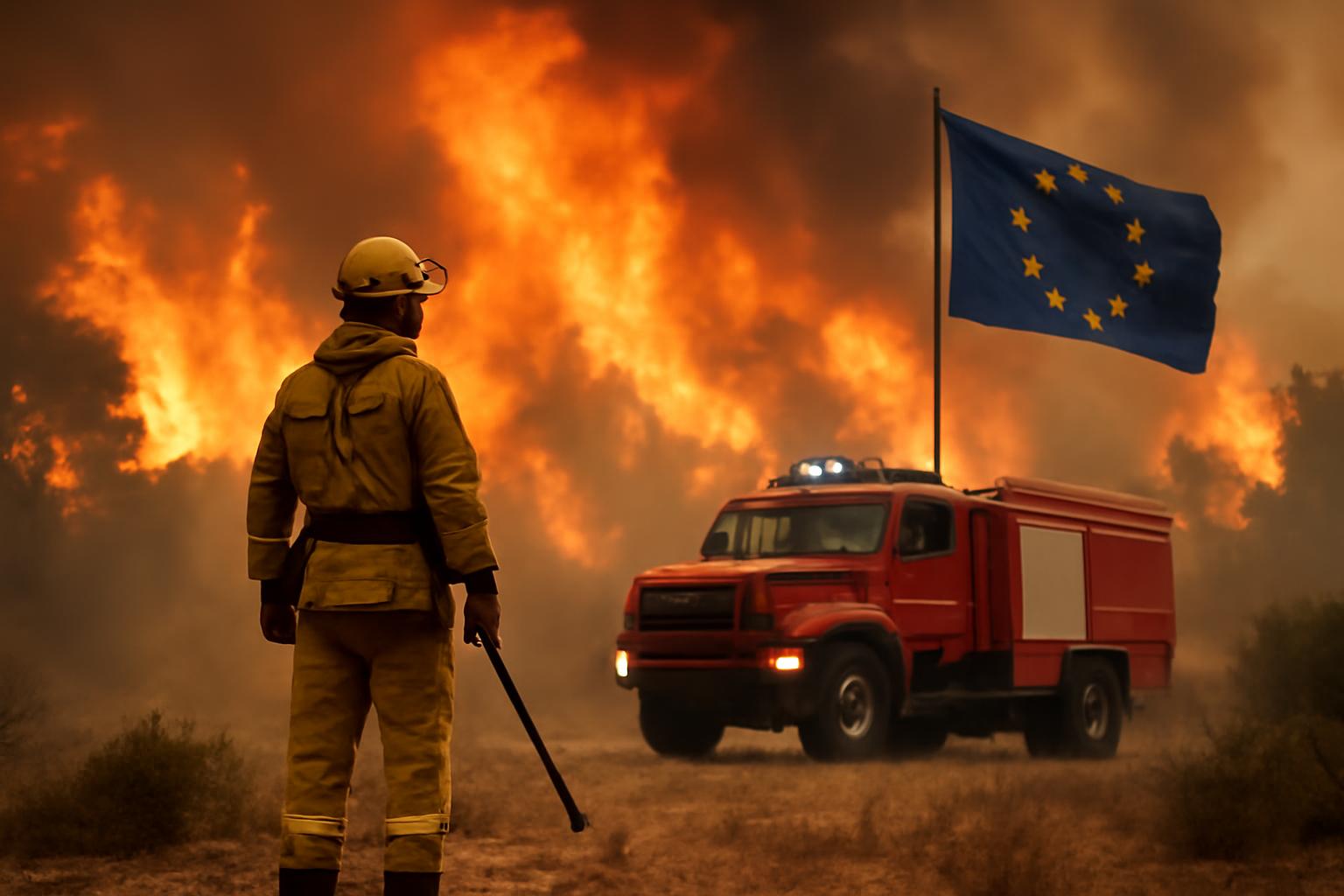Over 1,000 square kilometers of forest and scrub have been scorched in Spain, with Ourense and León bearing the brunt. The prime minister interrupted his summer respite to tour the affected zones, promising full central-government backing and adding 500 more soldiers to the firefighting effort, bringing the active numbers to well over 1,400. He called for a large, non-partisan national pact to confront the climate crisis, insisting that a basic framework be ready by September to mitigate and adapt to the climate emergency. The drought and heat waves persist, with temperatures above 40°C and officials warning of elevated fire risk across several regions. Spain has sought EU assistance under the Civil Protection Mechanism, expecting two Dutch firefighting aircraft and a convoy of more than 20 fire vehicles from Bonn. By mid-August, the EU’s EFFIS noted more than 1,570 square kilometers burned in 2025, making it one of the worst fire years in two decades, while neighboring Portugal fights its own outbreak and requests EU support. Experts remind us that longer, more intense drying trends driven by climate change, coupled with more forest and scrubland in sparsely populated areas, have increased fuel loads and fire danger.
One cannot help but observe the pageantry: a nation of opulent comforts, watching its leaders perform a somber ballet before cameras, as if a few extra soldiers and some overseas aircraft could somehow hush the furnace of a warming world. The pledge to craft a grand, non-partisan pact by September is picturesque, almost quaint—a political gesture dressed up as decisive action. Yet the blaze continues to roar, and the landscape—hollowed out by neglect and fragmentation—provides ample fuel. If governance were a fire drill, this would be a conspicuous display of good intentions with too little fuel management, too little prescience, and certainly too many slogans. The EU aid, the Dutch planes, the Bonn convoy—these are not ideological trophies but practical reminders that, in a crisis of planetary proportions, sovereignty is a luxury and solidarity is the real instrument. The harder truth is that the climate crisis does not respect borders or budgets, and a “basic framework” by September sounds impressive on a calendar but empty in its consequences unless it translates into stubborn, substantial prevention: disciplined forest management, early warning systems, resilient landscapes, and long-term adaptation, funded with the seriousness the crisis demands. Until that, the spectacle of improvised solutions and ceremonial declarations will continue to smolder while real danger advances, and the public, bless their hearts, will keep clinging to hope instead of demanding the decisive, costly, unglamorous work that might actually keep the flames at bay.
